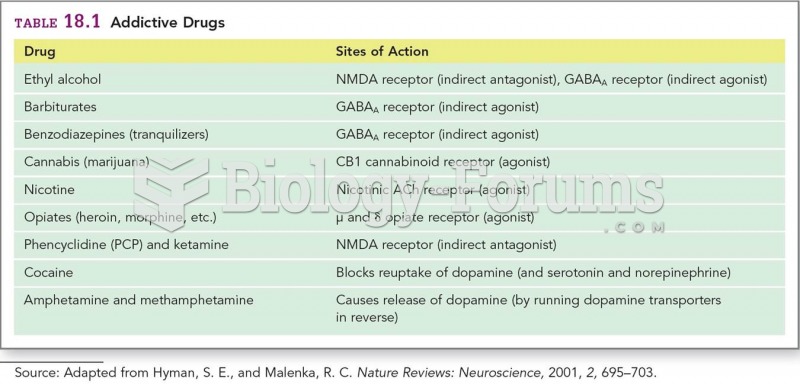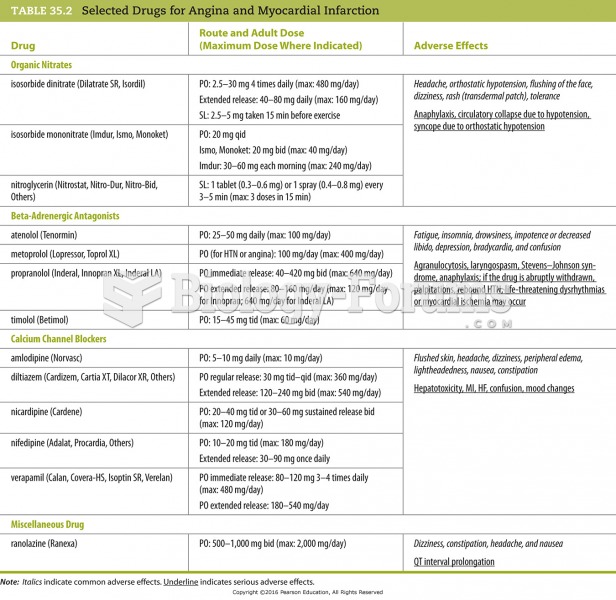|
|
|
All patients with hyperparathyroidism will develop osteoporosis. The parathyroid glands maintain blood calcium within the normal range. All patients with this disease will continue to lose calcium from their bones every day, and there is no way to prevent the development of osteoporosis as a result.
After a vasectomy, it takes about 12 ejaculations to clear out sperm that were already beyond the blocked area.
Hippocrates noted that blood separates into four differently colored liquids when removed from the body and examined: a pure red liquid mixed with white liquid material with a yellow-colored froth at the top and a black substance that settles underneath; he named these the four humors (for blood, phlegm, yellow bile, and black bile).
About 100 new prescription or over-the-counter drugs come into the U.S. market every year.
There are over 65,000 known species of protozoa. About 10,000 species are parasitic.







